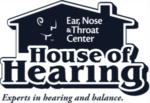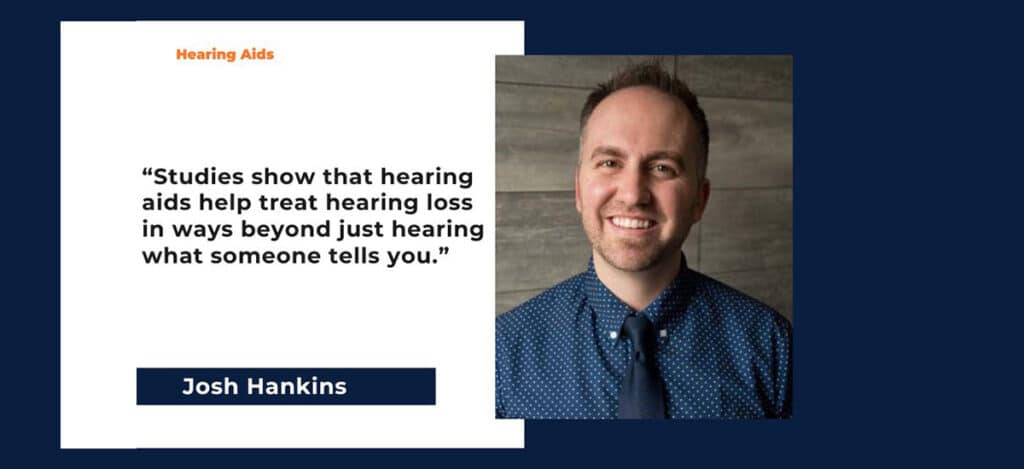I have treated thousands of patients throughout my career, and in some regard, every day is different. Each patient requires personal attention to help them in the best way possible.
My team and I do everything in our power to try and customize the care given to each person. This is the only way to truly and positively affect a patient’s hearing and, most importantly, their lifestyle.
However, since I have been doing this for so long, I have noticed some common concerns that often arise more than others. It’s human nature to wonder about the same things, as we all have the same goal of leading a happy life.
Here, I have compiled the most common inquiries about hearing aids. With technology progressing faster each day, it can be hard to keep up with all hearing aid companies’ offerings. Let us do the work for you and check out my responses to patients’ questions.
What Is The Benefit Of Hearing Aids?
Multiple studies show that hearing aids help treat hearing loss in ways beyond just hearing sounds. Besides making your communication easier and less stressful, good hearing is helpful in preventing other health issues such as cognitive decline, memory loss, and dementia.
Good hearing is needed for our balance system, our mental health, and our blood pressure.
Healthy hearing also can affect our social lives without us even knowing it. Hearing aids allow people to get back to activities and events that they may have been avoiding recently.
It can be hard to attend a dinner if you know you’re going to be asking people to repeat themselves all the time. It can also be difficult to pretend you heard something even though you didn’t.
Am I Too Young To Need Hearing Aids?
Hearing aids can often be associated with getting older, but it is not always the case.
Occupational and recreational noise exposure, accident, illness, injury, and genetics can all play a part in hearing loss. There is no particular age where hearing aids are recommended – they are designed for anyone experiencing a hearing loss and who wants to improve their quality of life.
The only way to honestly know if you need hearing aids is to get a comprehensive hearing assessment done. This test gives us a detailed blueprint of how you hear and what may be going wrong.
Only after a hearing test is administered can we start looking at remedies. Hearing loss does not know your age, nor does it care.
Do I Need To Get Two Hearing Aids?
Yes. If you have a symmetrical hearing loss, two hearing aids are always recommended. Each ear can have their own levels of health and, as such, need to be treated separately. If both your legs are broken, you wouldn’t put a cast on just one.
Aiding only one ear can lead to imbalance as well. It can decrease the function of understanding on the unaided side. Shifting all the hearing to one ear means your aided ear is taking on more than it should, and the unaided ear is not getting the exercise it needs to remain healthy.
Are Hearing Aid Features Complicated?
They don’t have to be complicated at all. Most hearing aids have many features that are automatic, meaning you don’t have to do anything at all to use them.
If you want to try using Bluetooth, it’s about as complicated as getting a new TV and learning the remote control. It might take a couple of tries, but before long, it’s easy.
Quality hearing aids offer excellent support. Many of the questions you have can easily be found online or in the manual that comes with your hearing aids. If you still have trouble, you can always bring them to us, and we can help you solve the problem.
What Happens If They Get Wet?
It’s rarely a problem!
Hearing aids aren’t WATERPROOF, but they are extremely water RESISTANT. If you accidentally get one wet, you can almost always shake it dry and keep wearing it with no problem.
Avoid submerging or keeping it in the rain for a long time. They are electronic, so if water does happen to find its way inside, it can do damage.
Always take your hearing aids out when you shower or go swimming. If you’re a runner or hiker and the forecast is calling for rain, then bring your carrying case with you so you can remove them if the rain gets too heavy.
How Long Do Hearing Aids Last?
Hearing aids can last as long as your hearing benefits from them. As we age, so does our hearing, and what worked for you at first may not continue to work over time. This can be hard to predict.
Hearing aids are also modern marvels of technology. So just like your phone or laptop, newer versions are being released constantly. You may find this newer model addresses your problem more accurately.
With all things being equal, your hearing aids should last a minimum of 4 years and can last much longer with proper upkeep. When not in use, always keep them in their case, clean them regularly, and keep them away from water.
Follow these simple steps, and as long as your hearing allows it, you can keep your investment for many years.
Will The Lyric Work For Me?
Lyric hearing aids aren’t for everyone, but most people can be successfully set up with them. Some people can’t achieve the ideal fit because of the size/shape of their ear canal. Some also don’t have a severe enough hearing loss, or the Lyric isn’t powerful enough.
Your provider can inspect your ear canal, analyze your audiogram, and let you know if you’re a candidate for Lyric or not.
How Do I Choose The Right Hearing Aid?
This is the most straightforward question I face here because the process of finding the best hearing aid for you always starts the same. Everyone needs to get a comprehensive hearing assessment done.
Only after this test can we begin the search. Hearing aid companies specialize in different areas of hearing. While they all have settings to be adjusted, we want to ensure that your issue is being addressed by a hearing aid specializing in that ailment.
If you have any questions about hearing aids at all, please call us right away. We are always ready and willing to chat about the health of your hearing.


